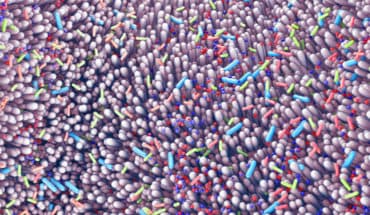New research from Brunel University London reveals how positive health behaviour changes from just one per cent of people can save healthcare services millions.
High-risk health behaviours such as smoking, excessive alcohol consumption and a lack of physical activity translate into mortality, hospitalisations and high costs to healthcare services.
One of the keys to reducing national healthcare spending lies in the hands of our citizens, and Prof Francesco Moscone, a business economics expert at Brunel University London and Ca’ Foscari University in Venice, has conducted a new study to estimate the savings for regional healthcare systems resulting from a reduction in high-risk behaviours.
Prof Moscone quantified the impact of these high-risk behaviours on the Italian regional healthcare systems and found that the impact of just one per cent of the population changing their smoking, drinking and exercise habits would save the country millions.
“For every one per cent reduction in smokers, it is estimated that there would be savings of 331 million euros annually for public funds,” said Prof Moscone.
“In the case of alcohol, a reduction of one heavy drinker per 1000 inhabitants would lead to a saving of 60 million.
“With one per thousand fewer sedentary individuals, the gain would be 223 million euros annually.”
The study also explored what could happen if smokers switched to lower-risk products, such as e-cigarettes or heated tobacco. “The simple transition of 50% of traditional smokers from cigarettes to lower-risk products could generate a total of 772 million euros in annual savings for Italy’s’ healthcare systems,” said Prof Moscone.
Prof Moscone’s previous research showed that if half of England’s smokers turned to reduced-risk products, such as vapes, then the NHS would save an estimated £518 million in an average year. If the conversion rate was just 10%, the NHS would save £103 million.
“As Italy’s most populous region, Lombardy would reap the greatest benefits from the conversion from traditional cigarettes to lower-risk products, with estimated savings of 140 million euros. They are followed by Campania and Lazio with 70 million and Veneto and Sicily at 56 million,” said Prof Moscone.
“We hypothesise that the same dynamic could apply to other pathologies and lower-risk solutions compared to alcohol consumption and sedentary behaviour.”
- Gut microbiome could delay onset of type 1 diabetes - 3rd April 2025
- The da Vinci 5 Robot Is Set To Transform Bariatric Care: - 31st March 2025
- Beyond money: the hidden drivers fuelling child food insecurity - 31st March 2025






